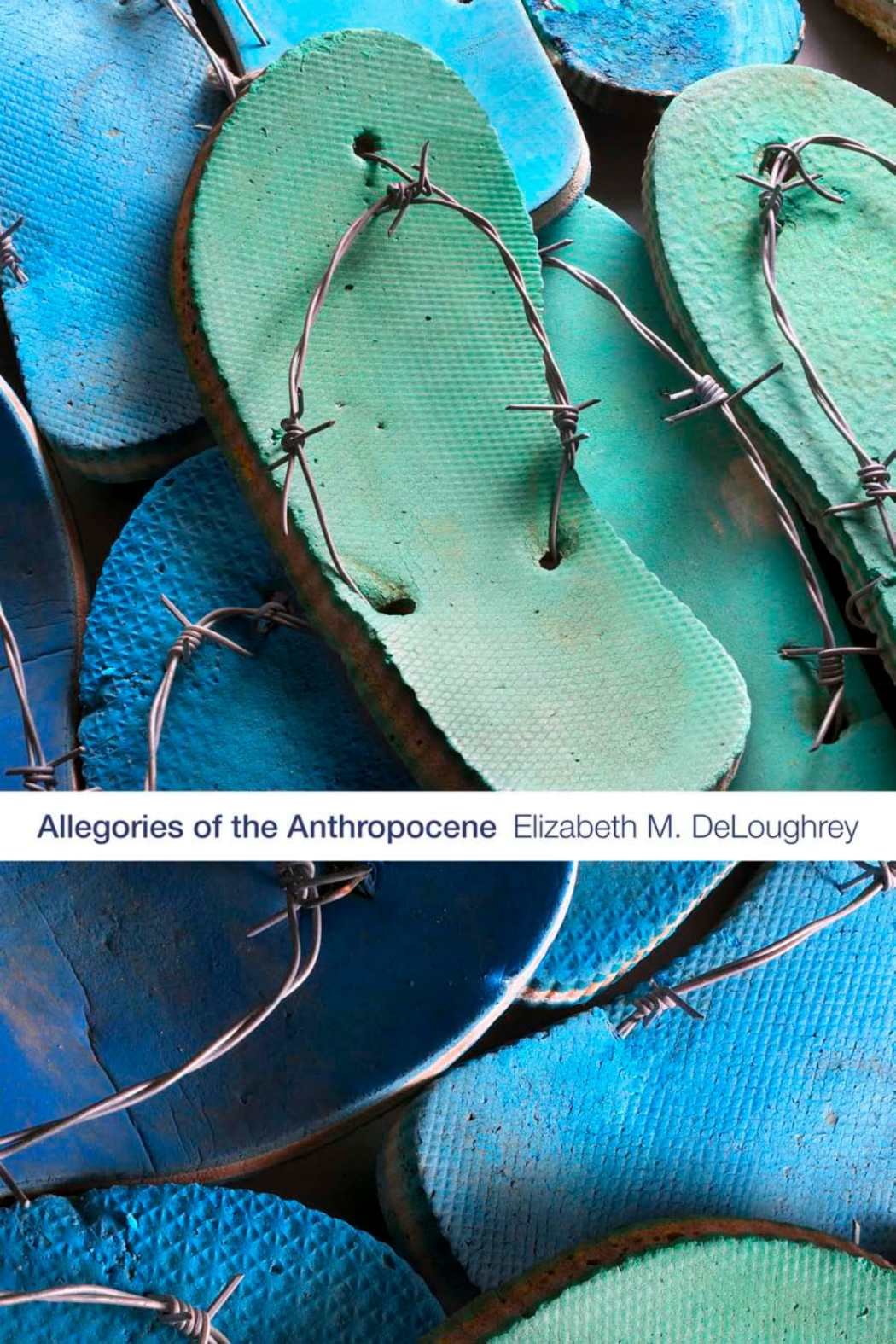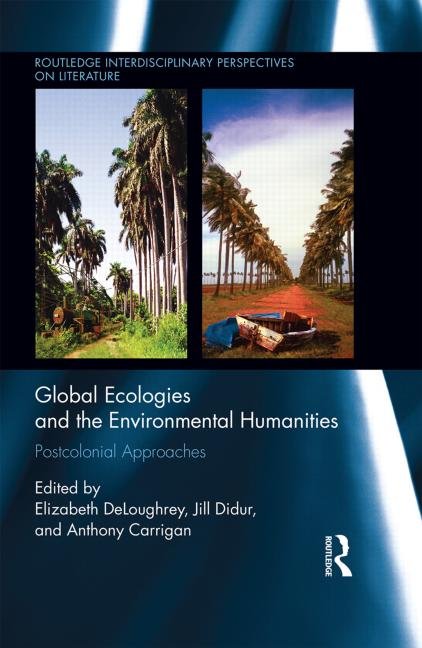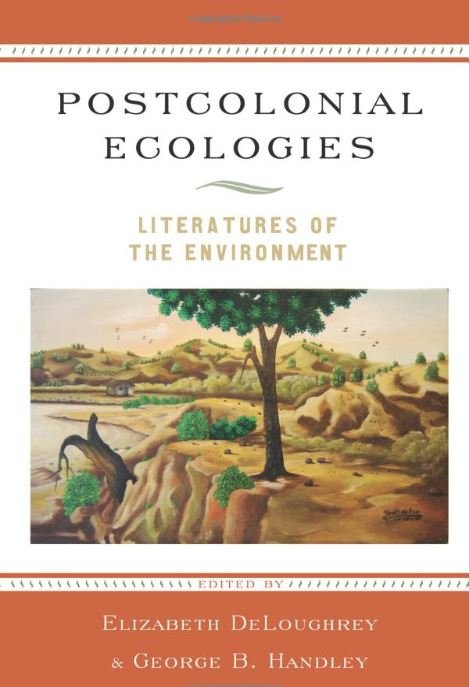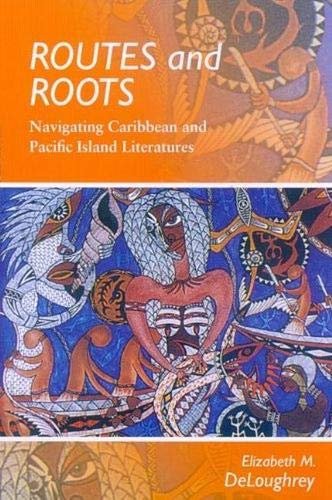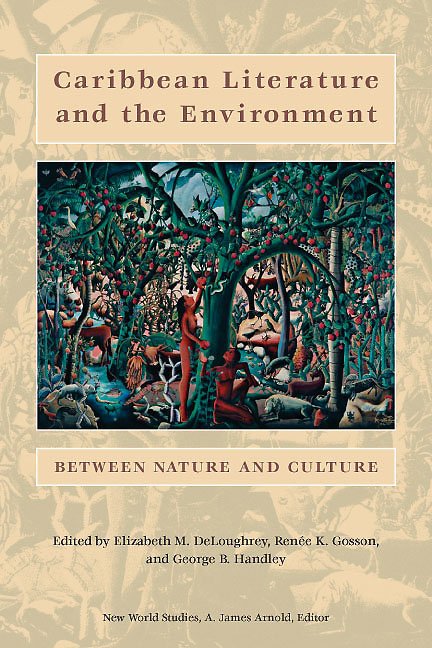
Books
Allegories of the Anthropocene
Duke University Press, 2019
Allegories of the Anthropocene traces how indigenous and postcolonial peoples in the Caribbean and Pacific Islands grapple with the enormity of colonialism and anthropogenic climate change through art, poetry, and literature. In these works, authors and artists use allegory as a means to understand the multiscalar complexities of the Anthropocene and to critique the violence of capitalism, militarism, and the postcolonial state. I examine the work of a wide range of artists and writers—including poets Kamau Brathwaite and Kathy Jetñil-Kijiner, Dominican installation artist Tony Capellán, and authors Keri Hulme and Erna Brodber—whose work addresses Caribbean plantations, irradiated Pacific atolls, global flows of waste, and allegorical representations of the ocean and the island. In examining how island writers and artists address the experience of finding themselves at the forefront of the existential threat posed by climate change, I demonstrate how the Anthropocene and empire are mutually constitutive and establish the vital importance of allegorical art and literature in understanding our global environmental crisis.
Cover art: Tony Capellán, Mar Caribe
Global Ecologies and the Environmental Humanities
Routledge, 2015
Co-edited with Jill Didur and Anthony Carrigan
This book examines current trends in scholarly thinking about the new field of Environmental Humanities, focusing in particular on how the history of globalization and imperialism represents a special challenge to the representation of environmental issues. Essays in this path-breaking collection examine the role that narrative, visual, and aesthetic forms can play in drawing attention to and shaping our ideas about long-term and catastrophic environmental challenges such as climate change, militarism, deforestation, the pollution and management of the global commons, petrocapitalism, and the commodification of nature.
The volume presents a postcolonial approach to the environmental humanities, especially in conjunction with current thinking in areas such as political ecology and environmental justice. Spanning regions such as Africa, Asia, Eastern Europe, Latin America, the Caribbean, Australasia, and the Pacific, as well as North America, the volume includes essays by founding figures in the field as well as new scholars, providing vital new interdisciplinary perspectives on: the politics of the earth; disaster, vulnerability, and resilience; political ecologies and environmental justice; world ecologies; and the Anthropocene. In engaging critical ecologies, the volume poses postcolonial environmental humanity for the twenty-first century. At the heart of this is a conviction that a thoroughly global, postcolonial, and comparative approach is essential to defining the emergent field of the environmental humanities and that this field has much to offer in understanding critical issues surrounding the creation of alternative ecological futures.
Contributions from David Arnold, Lizabeth Paravisini-Gebert, Susan K. Martin, Barbara Rose Johnston, Ilan Kelman, J.C. Gaillard, Jessica Mercer, James Lewis, Susie O’Brien, Jorge Marcone, Byron Caminero-Santangelo, Cheryl Lousley, Michael Niblett, Sharae Deckard, Joseph Masco, and George B. Handley
Foreword by Dipesh Chakrabarty
Postcolonial Ecologies: Literatures of the Environment
Oxford University Press, 2011
This book brings ecocritical studies into a dialogue with postcolonial studies. By examining African, Caribbean, Pacific Island, and South Asian literatures and how they depict the relationship between humans and nature, this book makes a compelling argument for a more global approach to thinking through our current environmental crisis. Turning to the contemporary production of postcolonial novelists and poets, this book poses the literary imagination as a crucial to imagining what Eduoard Glissant calls the “aesthetics of the earth.” The book is organized around thematic concerns such as the relationship between culture and cultivation, arboriculture and deforestation, the lives of animals, and the relationship between the military and the tourist industry.
Co-edited with George B. Handley
With contributions from Jill Didur, LeGrace Benson, Elaine Savory, Lizabeth Paravisini-Gebert, Jennifer Wenzel, Rob Nixon, Jonathan Steinwand, Allison Carruth, Pablo Mukherjee, Dina El Dessouky, Anthony Carrigan, Byron Caminero-Santangelo
Routes and Roots: Navigating Caribbean and Pacific Island Literatures
University of Hawai`i Press, 2007
Routes and Roots is the first comparative study of Caribbean and Pacific Island literatures and the first work to bring indigenous and diaspora literary studies together in a sustained dialogue. Taking the “tidalectic” between land and sea as a dynamic starting point, I foreground geography and history in my exploration of how island writers inscribe the complex relation between routes and roots.
The first section looks at the sea as history in literatures of the Atlantic middle passage and Pacific Island voyaging, theorizing the transoceanic imaginary. The second section turns to the land to examine indigenous epistemologies in nation-building literatures. Both sections are particularly attentive to the ways in which the metaphors of routes and roots are gendered, exploring how masculine travelers are naturalized through their voyages across feminized lands and seas. This methodology of charting transoceanic migration and landfall helps elucidate how theories and people travel, positioning island cultures in the world historical process. I demonstrate how these tropical island cultures helped constitute the very metropoles that deemed them peripheral to modernity.
Caribbean Literature and the Environment: Between Nature
and Culture
University of Virginia Press
Perhaps there is no other region in the world that has been more radically altered in terms of human and botanic migration, transplantation, and settlement than the Caribbean. Theorists such as Edouard Glissant argue that the dialectic between Caribbean “nature” and “culture,” engendered by this unique and troubled history, has not heretofore been brought into productive relation. Caribbean Literature and the Environment redresses this omission by gathering together eighteen essays that consider the relationship between human and natural history. The result is the first volume to examine the literatures of the Caribbean from an ecocritical perspective in all language areas of the region.
In its exploration of the relationship between nature and culture, this collection focuses on four overlapping themes: how Caribbean texts inscribe the environmental impact of colonial and plantation economies; how colonial myths of edenic and natural origins are revisioned; what the connections are between histories of biotic and cultural creolization; and how a Caribbean aesthetics might usefully articulate a means to preserve sustainability in the context of tourism and globalization. By creating a dialogue between the growing field of ecological literary studies, which has primarily been concerned with white settler narratives, and Caribbean cultural production, especially the region’s negotiation of complex racial and ethnic legacies, these essays explore the ways in which the history of transplantation and settlement has provided unique challenges and opportunities for establishing a sense of place and an environmental ethic in the Caribbean.
Co-edited with Renée K. Gosson and George B. Handley
With contributions from Antonio Benítez-Rojo, Derek Walcott, Wilson Harris, Cyril Dabydeen, Trenton Hickman, Shona Jackson, LeGrace Benson, Jana Evans Braziel, Isabel Hoving, Natasha Tinsley, Helen Tiffin, Hena Maes-Jelinek, Heidi Bojsen, Ineke Phaf-Rheinberger, Eric Prieto, and Lizabeth Paravisini-Gebert
Interviews with Derek Walcott and Raphaël Confiant
